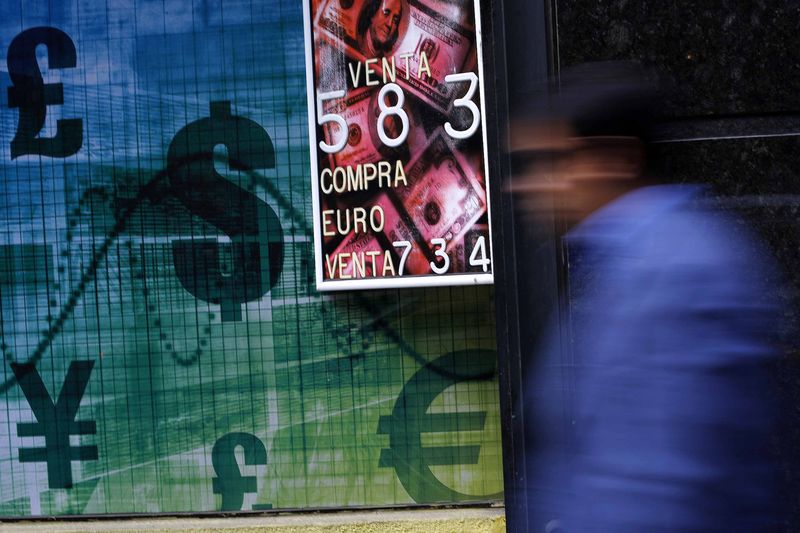* Euro broadly lower, hits three-month lows vs yen
* ECB trims growth, inflation forecasts, says can adjust QE
* U.S. nonfarm payrolls next key focus for markets
By Ian Chua
SYDNEY, Sept 4 (Reuters) - The euro nursed losses early on Friday, having come under broad pressure after the European Central Bank gave a sobering assessment of the euro zone economy and suggested it may have to beef up its already massive stimulus program.
The common currency slid as far as $1.1087 EUR= , from levels above $1.1200. It last stood at $1.1122. Against the yen, it skidded to its lowest in over three months at 133.13 EURJPY=R before edging back to 133.63.
Traders in Asia may not take things much further ahead of U.S. nonfarm payrolls due later on Friday and with no leads from Chinese financial markets, which are closed for a holiday.
A solid payrolls outcome would bolster the case for an interest rate hike by the Federal Reserve this month. Conversely a weak number would cloud the view for a September lift off. The market consensus is for an increase of 220,000 jobs. ECONUS
For the first time, ECB President Mario Draghi said explicitly the bank's bond-buying programme may run beyond September 2016 and that its size and composition may be adjusted.
The ECB warned growth would suffer from fading momentum in emerging markets, particularly China, and falling oil prices could drag the 19-member euro zone back into deflation in coming months. In a widely expected decision, it left policy unchanged for now. ID:nL5N1190VG
"Bottom line: the risk the ECB's current asset purchase program is extended beyond September 2016 is rising which should continue to weigh on euro and euro zone short-term swap rates," Elias Haddad, senior currency strategist at Commonwealth Bank wrote in a note to clients.
Weakness in the euro helped lift the dollar index .DXY to its highest in over two weeks at 96.405, and further away from a seven-month trough of 92.621 plumbed last week.
The greenback, however, was little changed on the yen, trading at 120.18 JPY= after losing its grip of 120.70.
The ECB's dovish stance helped inject some life into European stocks, but failed to lift risk appetite in general, resulting in a half-hearted performance from Wall Street.
In turn, commodity currencies were mixed with both the New Zealand and Canadian dollars NZD=D4 CAD=D4 firming against the greenback, but the Australian dollar languished near a 6-1/2 year trough of $0.6982 AUD=D4 .
There is nothing in the way of market-moving data out of Asia on Friday, leaving the focus firmly on U.S. data. Chinese markets resume trade on Monday, while U.S. markets will be shut for Labor Day.
